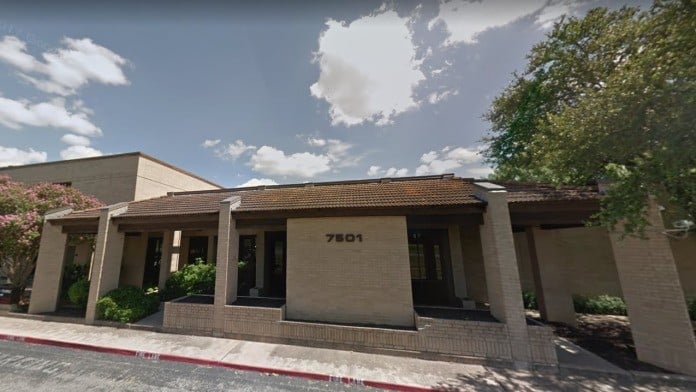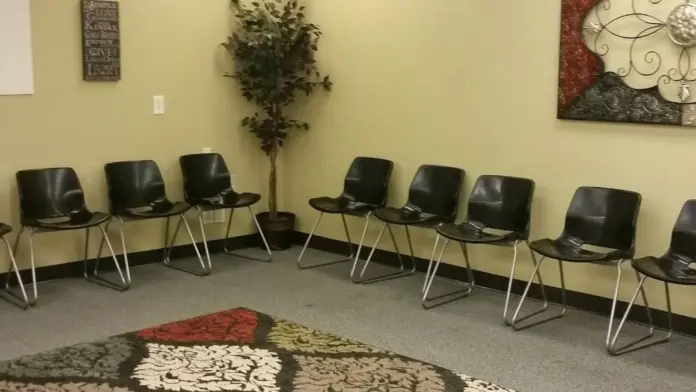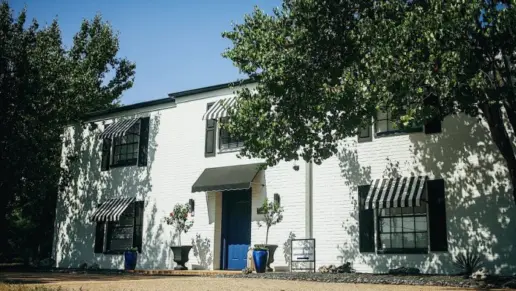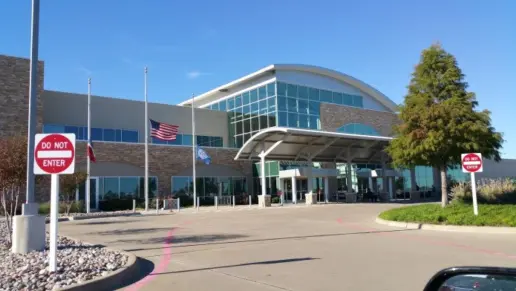About Nova Recovery Center Drug and Alcohol Rehab – Austin, TX
Nova Recovery Center offers a full range of treatment options for adults struggling with substance use disorders. Their continuum of care includes medical detox, inpatient rehabilitation and supportive/intensive outpatient programs.
They have an incredible reputation for quality and personalized care. Their accreditation by the Joint Commission confirms this commitment to quality. Their gender specific rehab programs offer separate living and treatment spaces for men and women. This minimizes distractions helps you focus on recovery.
The program begins with a comprehensive assessment and individualized treatment planning. This is followed by medical detox, inpatient rehabilitation and outpatient therapy. Detoxing takes place in their structured and highly therapeutic detox unit. It involves a carefully managed withdrawal procedure with 24/7 monitoring by trained clinical personnel. These experts may administer meds if necessary to minimize withdrawal symptoms.
They also provide counseling and therapy sessions to help you manage the emotional and psychological aspects of withdrawal. Nutritious meals and dietary supplements are equally supplied to help your body heal and regain strength. Depending on your unique condition the detox may last 24 hours to a few days. Their clinical team will assist your transition to inpatient rehabilitation when you’re stabilized and in good health. This program is led by caring clinical professionals who provide 24/7 guidance, support and personalized care.
They offer group and individual therapy that draws from clinically proven methods. This includes cognitive behavioral therapy and dialectical behavioral therapy. These models promote healthier thinking patterns, emotional regulation and coping skills that prevent relapse and sober living. Family involvement is emphasized and they provide family counseling to mend relationships and improve communication with loved ones. This creates a positive family dynamic that strengthens your support network.
You’ll participate in educational workshops to gain valuable skills and knowledge that support your recovery journey and personal growth. These workshops may cover coping strategies, relapse prevention and healthy living. The program also integrates holistic approaches like mindfulness practices, stress management techniques and wellness activities to support your overall wellbeing. The goal is to heal the body, mind and spirit. The length of residential treatment may depend on your unique condition and recovery progress.
You can continue your recovery journey via their outpatient program to achieve lasting sobriety. Folks seeking flexible therapeutic support for moderate to mild symptoms can also benefit from their outpatient care. The most compelling quality of this program is the flexibility and convenience it offers. The therapy sessions include evening and weekend schedules to accommodate work, school and family commitments.
The intensive outpatient option is slightly more structured. It may involve up to nine hours of therapy sessions weekly compared to about 90 minutes for the supported outpatient program. That said, both programs essentially use the same therapeutic models as inpatient rehabilitation. The facility offers ongoing support to help you maintain sobriety after completing the outpatient program. This includes ongoing counseling, support groups and connections to community resources like stable housing and job opportunities.
Latest Reviews
Rehab Score
Gallery



Location
Accepted Insurance
Other Forms of Payment
Private insurance refers to any kind of healthcare coverage that isn't from the state or federal government. This includes individual and family plans offered by an employer or purchased from the Insurance Marketplace. Every plan will have different requirements and out of pocket costs so be sure to get the full details before you start treatment.
Self-pay involves paying for treatment out of your own pocket. You can use savings or credit, get a personal loan, or receive help from family and friends to fund your treatment. If you don't have insurance or your insurance plan doesn't cover a specific program, self-pay can help ensure you still get the care you need.
Addiction Treatments
Levels of Care
Treatments
The goal of treatment for alcoholism is abstinence. Those with poor social support, poor motivation, or psychiatric disorders tend to relapse within a few years of treatment. For these people, success is measured by longer periods of abstinence, reduced use of alcohol, better health, and improved social functioning. Recovery and Maintenance are usually based on 12 step programs and AA meetings.
During rehab in Texas, you'll deal with underlying issues that contribute to addiction. By addressing these challenges and learning healthy ways to cope with them, you'll develop strategies that help you live a drug-free lifestyle.
Many of those suffering from addiction also suffer from mental or emotional illnesses like schizophrenia, bipolar disorder, depression, or anxiety disorders. Rehab and other substance abuse facilities treating those with a dual diagnosis or co-occurring disorder administer psychiatric treatment to address the person's mental health issue in addition to drug and alcohol rehabilitation.
A combined mental health and substance abuse rehab has the staff and resources available to handle individuals with both mental health and substance abuse issues. It can be challenging to determine where a specific symptom stems from (a mental health issue or an issue related to substance abuse), so mental health and substance abuse professionals are helpful in detangling symptoms and keeping treatment on track.
Opioid rehabs specialize in supporting those recovering from opioid addiction. They treat those suffering from addiction to illegal opioids like heroin, as well as prescription drugs like oxycodone. These centers typically combine both physical as well as mental and emotional support to help stop addiction. Physical support often includes medical detox and subsequent medical support (including medication), and mental support includes in-depth therapy to address the underlying causes of addiction.
Programs


Clinical Services
Cognitive Behavioral Therapy (CBT) is a therapy modality that focuses on the relationship between one's thoughts, feelings, and behaviors. It is used to establish and allow for healthy responses to thoughts and feelings (instead of unhealthy responses, like using drugs or alcohol). CBT has been proven effective for recovering addicts of all kinds, and is used to strengthen a patient's own self-awareness and ability to self-regulate. CBT allows individuals to monitor their own emotional state, become more adept at communicating with others, and manage stress without needing to engage in substance abuse.
Dialectical Behavior Therapy (DBT) is a modified form of Cognitive Behavioral Therapy (CBT), a treatment designed to help people understand and ultimately affect the relationship between their thoughts, feelings, and behaviors. DBT is often used for individuals who struggle with self-harm behaviors, such as self-mutilation (cutting) and suicidal thoughts, urges, or attempts. It has been proven clinically effective for those who struggle with out-of-control emotions and mental health illnesses like Borderline Personality Disorder.
Group therapy is any therapeutic work that happens in a group (not one-on-one). There are a number of different group therapy modalities, including support groups, experiential therapy, psycho-education, and more. Group therapy involves treatment as well as processing interaction between group members.
In individual therapy, a patient meets one-on-one with a trained psychologist or counselor. Therapy is a pivotal part of effective substance abuse treatment, as it often covers root causes of addiction, including challenges faced by the patient in their social, family, and work/school life.
Therapy sessions that incorporate motivational interviewing focus on OARS: open questions, affirmation, reflections, and summarizing. This facilitates an exchange of information and an empowering of the client to decide for themselves what changes might need to be made in their lives.
Trauma therapy addresses traumatic incidents from a client's past that are likely affecting their present-day experience. Trauma is often one of the primary triggers and potential causes of addiction, and can stem from child sexual abuse, domestic violence, having a parent with a mental illness, losing one or both parents at a young age, teenage or adult sexual assault, or any number of other factors. The purpose of trauma therapy is to allow a patient to process trauma and move through and past it, with the help of trained and compassionate mental health professionals.
Couples therapy helps couples learn to control emotions, trust each other, and communicate more effectively. It can be useful for short term intervention for a specific issue or for working on the relationship long term.
Research clearly demonstrates that recovery is far more successful and sustainable when loved ones like family members participate in rehab and substance abuse treatment. Genetic factors may be at play when it comes to drug and alcohol addiction, as well as mental health issues. Family dynamics often play a critical role in addiction triggers, and if properly educated, family members can be a strong source of support when it comes to rehabilitation.
Life skills trainings involve all the skills a person must have in order to function successfully in the world. These include time management, career guidance, money management, and effective communication. Truly successful addiction recovery is based on the ability to not only live substance-free, but to thrive. Life skills teaches the practical necessities of functioning in society, which sets clients up for success in life, and therefore sobriety.
Creativity is inherently healing, and can help those in recovery express thoughts or feelings they might not otherwise be able to. Creative arts therapy can include music, poetry/writing, painting, sculpting, dance, theater, sandplay, and more. Unlike traditional art, the final product matters far less than the experience of creation and expression itself.
Experiential therapy is a form of therapy in which clients are encouraged to surface and work through subconscious issues by engaging in real-time experiences. Experiential therapy departs from traditional talk therapy by involving the body, and having clients engage in activities, movements, and physical and emotional expression. This can involve role-play or using props (which can include other people). Experiential therapy can help people process trauma, memories, and emotion quickly, deeply, and in a lasting fashion, leading to substantial and impactful healing.
Amenities
-
Gym
-
Residential Setting
-
Private Rooms
-
Gardens
-
Walking Trails
Accreditations

State Licenses are permits issued by government agencies that allow rehab organizations to conduct business legally within a certain geographical area. Typically, the kind of program a rehab facility offers, along with its physical location, determines which licenses are required to operate legally.
State License: Texas

The Joint Commission, formerly known as JCAHO, is a nonprofit organization that accredits rehab organizations and programs. Founded in 1951, the Joint Commision's mission is to improve the quality of patient care and demonstrating the quality of patient care.
Joint Commission Accreditation: Yes

The National Association of Addiction Treatment Providers (NAATP) is a professional association that represents organizations in the field of addiction services. Founded in 1978, NAATP's mission is to advance addiction services and ensure that high-quality addiction treatment is available and accessible.
NAATP Member: Yes
Contact Information
7501 E Hwy 290
Austin, TX 78752






